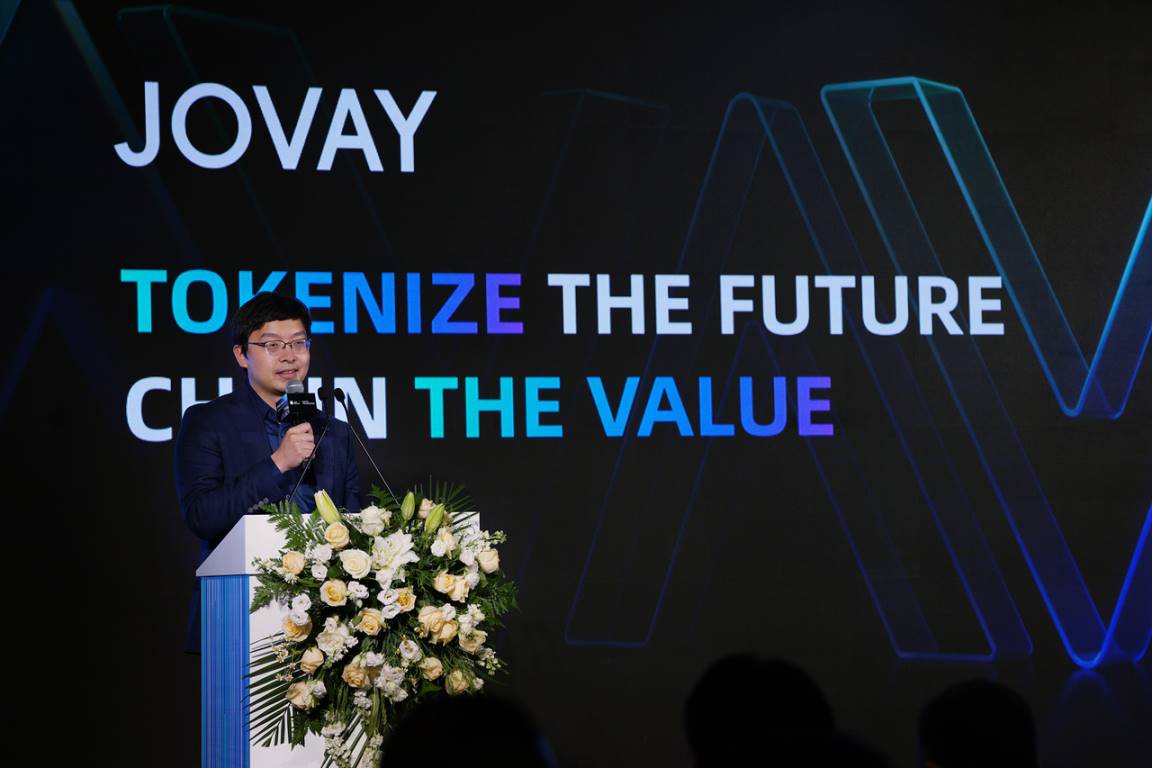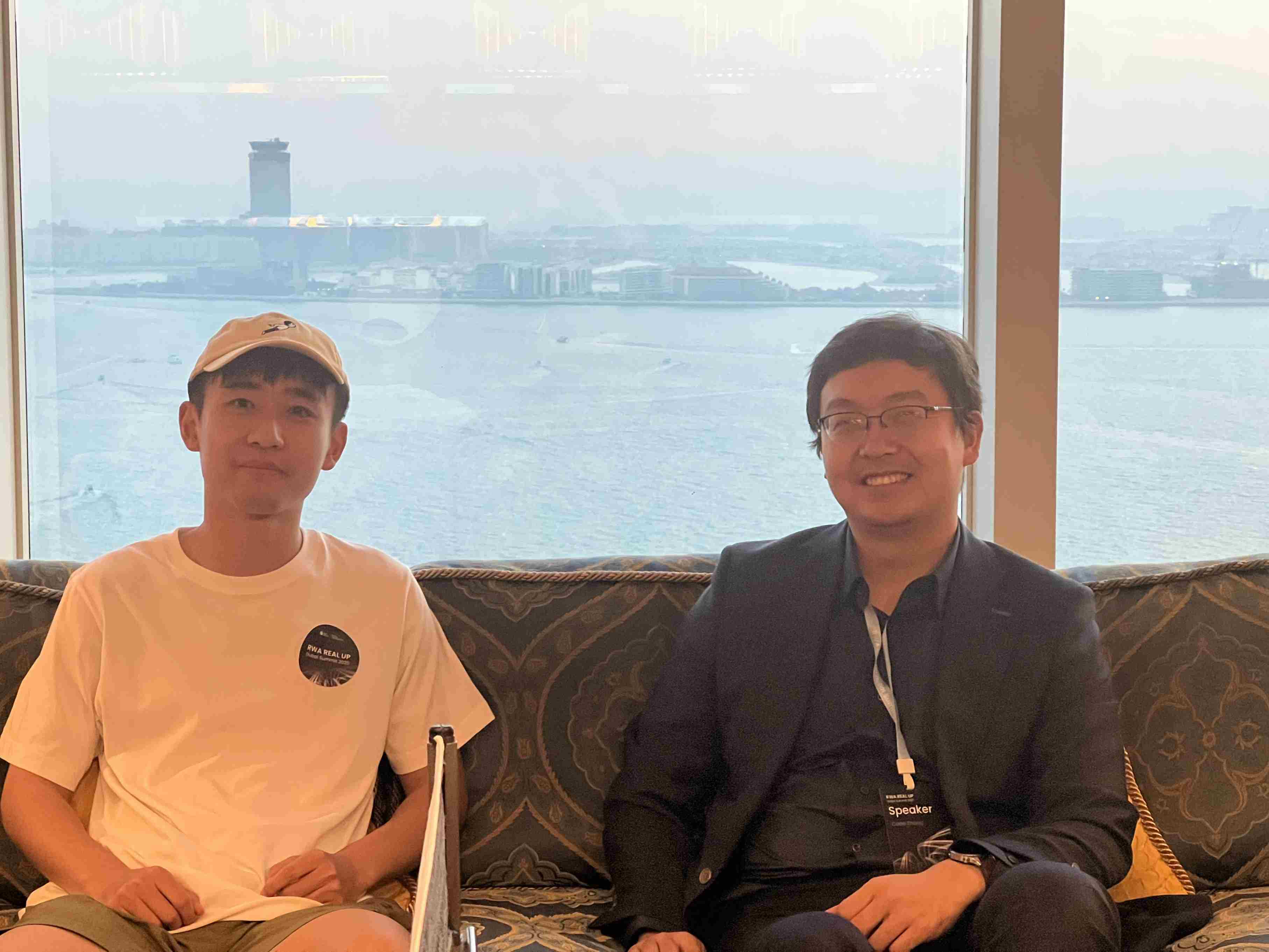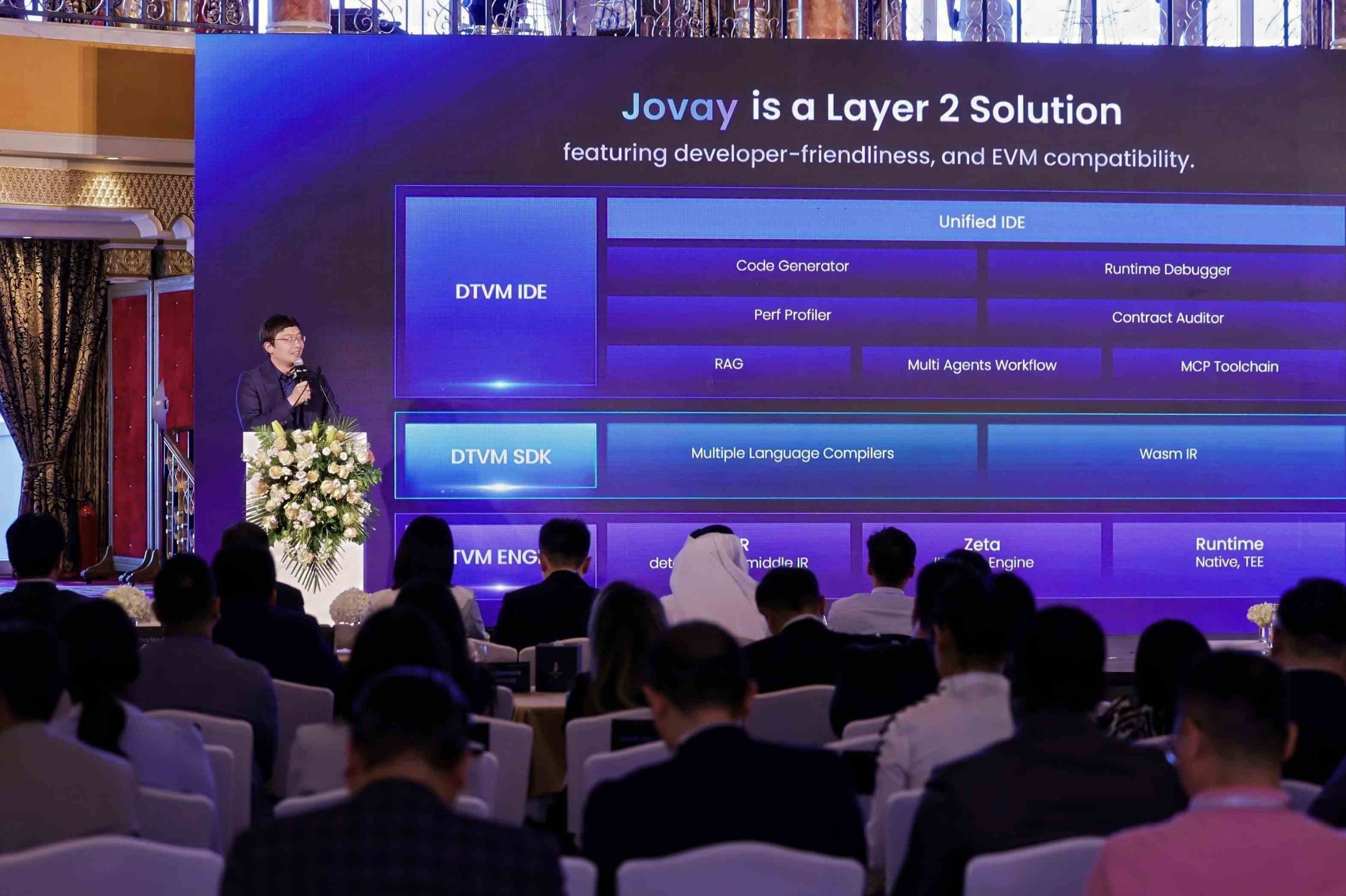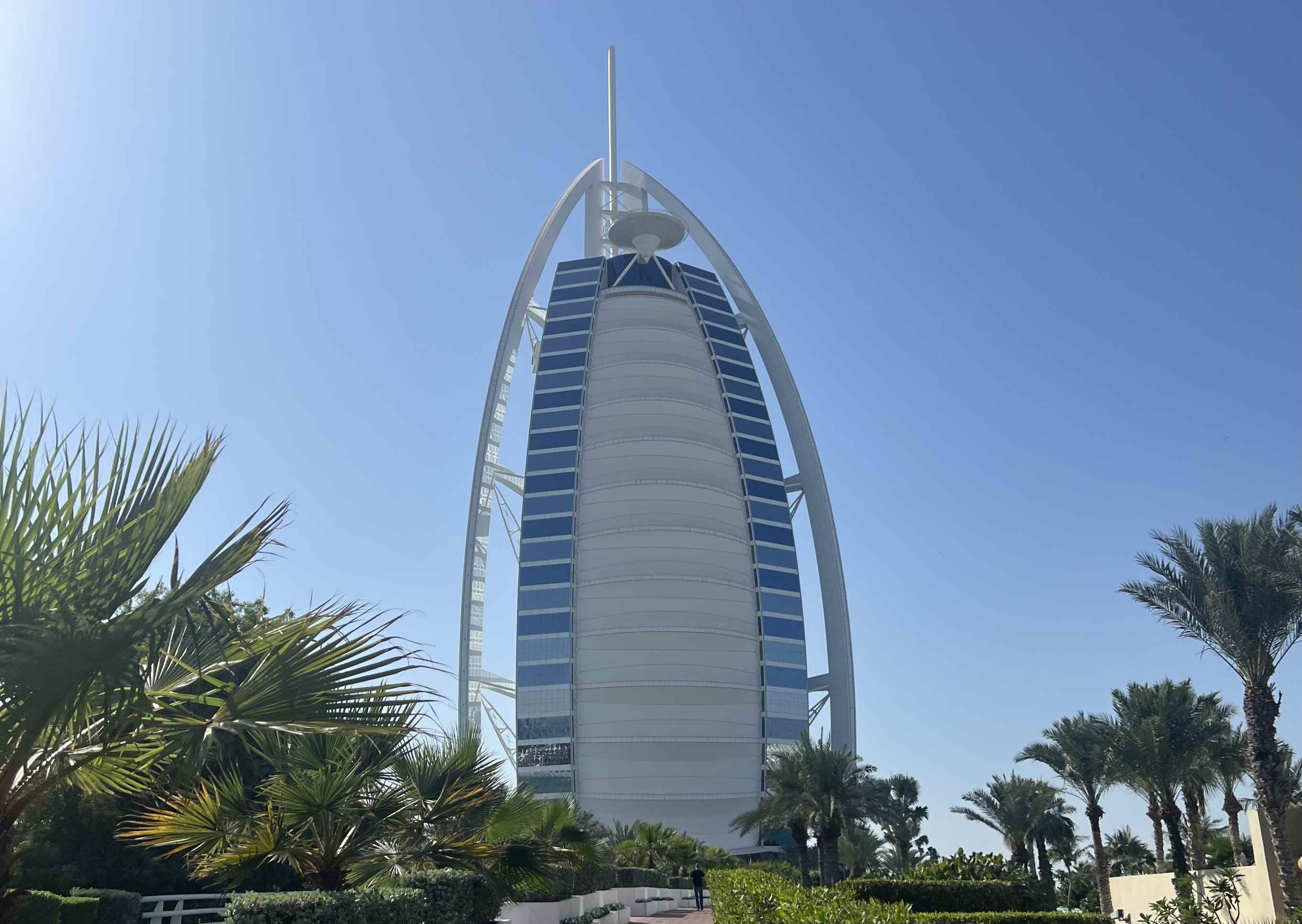Ant Group is set to create two chains: one is a consortium chain, and the other is a public blockchain.
Written by: Joe Zhou, Foresight News

In the cryptocurrency industry, there are three scenarios that have almost been proven to achieve mass adoption like internet products: exchanges, stablecoins, and public blockchains. Futu has chosen to be an exchange, JD.com has opted to issue stablecoins, while Ant Group has decided to create a public blockchain… These three companies are attempting to "localize" the three Web3 tracks that have already been validated abroad for large-scale commercialization globally.
Unlike before, this time they are not satisfied with the "chain" itself but are also touching upon "coin," a term that remains very sensitive for Chinese companies.
Cobe Zhang, head of Ant Group's L2, stated in an interview with Foresight News that Ant Group aims to build a public blockchain (public blockchain) based on Ethereum, which will interact with domestic consortium chains. "This references how Chinese companies go public overseas, where data remains domestic, but shares and reports need to be provided to investors abroad," Cobe Zhang said.
For a long time, China had blockchain companies but no cryptocurrency companies. However, it seems that subtle changes are occurring, and although these explorations are being realized through their overseas entities, it still represents a significant breakthrough. What has changed in the domestic and international environment that makes these internet companies willing to bear the risks of reputation and regulatory scrutiny to explore cryptocurrency? How extensive will the openness of Ant Group's upcoming L2 public blockchain be?
In May 2025, Dubai hosted one of the largest events in the cryptocurrency industry, TOKEN 2049, attracting tens of thousands of cryptocurrency professionals from around the world. During this period, Ant Group held a grand press conference at one of Dubai's most prestigious hotels, the Burj Al Arab, officially announcing the launch of its L2 public blockchain, Jovay.
Foresight News witnessed this moment offline and engaged in a dialogue with Cobe Zhang after the press conference.

Right: Cobe Zhang, head of Jovay
Ant Group has created a public blockchain, Jovay
Joe: When did Ant Group start considering the idea of an L2 public blockchain?
Cobe Zhang: We have been discussing it for a long time and have been preparing for it early on.
Joe: Is it because of recent changes in the domestic and international environment?
Cobe Zhang: We have received a lot of positive feedback. For example, when communicating with others overseas, we received much feedback. It's hard to pinpoint it to a specific moment.
Joe: What kind of feedback?
Cobe Zhang: From government agencies, regulatory bodies, and financial institutions in mainland China, Hong Kong, Europe, America, and the Middle East. I think a lot of the feedback is very positive; everyone hopes to see another possibility. We believe that different market participants are under different macro trends, and I think that doing L2 indeed requires the right timing, location, and people to do it particularly well. For us, having positive signals is already enough to support us in pursuing this.
Joe: Why did you name the newly launched L2 public blockchain Jovay?
Cobe Zhang: It contains two key words. The first is "Jo," which represents "join" and "journey." We hope that many people can collaborate on this L2 and work together on a long journey. The second is "value," which emphasizes our value proposition of real and verifiable capabilities. The "y" is purely for phonetic appeal.
Joe: It sounds a bit like French?
Cobe Zhang: Yes, it does sound a bit like French. "Jo" and "va" are roots we determined early on, and we combined them to see how to convey a hopeful feeling to English speakers. This is a purely creative word.
Joe: I saw that the founder of Pharos (the L1 blockchain created by former Ant Chain CTO Zhang Hui) also spoke at this press conference, and I just met with project parties from the Pharos ecosystem working on DEX. It feels like the two public blockchains are closely related. What is the current relationship between Pharos and Jovay?
Cobe Zhang: They have left to start their own ventures because they were doing a lot of technical work here, and they were also early developers of Ant Chain, so there has always been technical communication. Secondly, I believe many of them are interested in the RWA field when they venture into Web3. They know that Ant Group is working on it, and they want to collaborate. I think those are the main connections.
Starting a business is a personal endeavor and does not have a direct relationship with Ant Group, but there is a sense of technical trust. It's somewhat like the group of people who left to start their own ventures from Facebook's Libra project; they all used the Move language. Their ecosystems are certainly interconnected. Of course, they are an independent startup and will decide their own business and collaboration methods.
Joe: As a new public blockchain, does Jovay have plans to issue tokens?
Cobe Zhang: No.
Joe: But can projects on Jovay issue tokens?
Cobe Zhang: If they want to, they can do so.
Joe: Does Jovay have any financing plans?
Cobe Zhang: As far as I know, no.
Joe: What will be the focus of Jovay's future development? For example, will it pursue the number of developers and builders like most public blockchains or attract more participants from various tracks?
Cobe Zhang: We will still focus on the RWA field. Of course, Jovay is permissionless, so developers can come. It's a bit like how WeChat and Alipay created their mini-program platforms; it won't restrict what you can do. However, from our perspective as a platform, we will still have our focused points. This is somewhat like how mini-programs are open, but Alipay revolves more around financial management and payment scenarios, while WeChat's mini-programs are more focused on gaming scenarios. This is determined by our genes (our genes are in finance). Therefore, the new ecosystem we actively build is centered around RWA.
We choose to build a more trustworthy environment through the L2 public blockchain. After all, for our users or users from another country, what is recorded on a public blockchain will be more credible and secure. We also hope to bring some institutions along to expand more scenarios.
Joe: Will you introduce governance methods like DAO as other public blockchains do?
Cobe Zhang: We are also gradually exploring new governance models. Initially, it may be more about collaboration among institutions, and later it may be directed towards a broader range of on-chain users. I have also looked at many organizational behaviors; one person, one vote may not be the best, but not allowing people to vote is also not ideal. The governance structure is also a point of exploration. As I mentioned, the entire system innovation also includes innovation in governance structures. Frankly, we haven't fully figured it out, but the direction is this.
I think one advantage of L2 is that you don't have to build such a large community from the start; you don't need hundreds of nodes. I believe that much of the trust we have now is already determined by the decentralized DAO organizations of L1, where your data and verifiability are sufficiently secure. Many institutions do the first layer of verification, and the second layer of verification reuses the consensus of the larger Web3 community, which cannot be blocked by a single person or institution. In a sense, these two layers are somewhat like the Senate and the House of Representatives. They can also operate, but they do not restrict you. I believe this is the way forward.
In a sense, the current U.S. market and some of its products play a role in "decentralized trust," but in every country, you trust some local people and local government institutions. The U.S. was like this in the past, but recently, people may not think this will always be the case. Everyone is considering a new source of trust; China is one option, but more people may ask if they can avoid a single source. If there is decentralized trust, more people may choose it. So I think this is a direction for exploration.
Another Web3 world in Cobe Zhang's mind
Joe: Have you always worked at Ant Group?
Cobe Zhang: I joined two years ago; I was previously at Megvii working on AI.
Joe: Why did you transition from AI to Web3?
Cobe Zhang: I find both topics very interesting. There are also AI elements here; the Ant code framework we released today includes AI elements, and we also have AI-related elements in the new energy industry.
Joe: Are you referring to the charging pile project?
Cobe Zhang: Charging piles, photovoltaics, battery swapping, energy storage… you should see more actions related to the new energy industry chain in the future.
Joe: Do you personally trade virtual assets?
Cobe Zhang: No, not at all.
Joe: So is the behavior of people issuing memecoins on your L2 allowed?
Cobe Zhang: As a product, I don't recognize the value of this behavior. However, product preferences should not define the product's positioning. I think we need to distinguish between the two; it's like I believe Zhang Xiaolong may not like playing games.
I think we maintain an open attitude, welcoming all kinds of people, but at the same time, I believe the areas we seriously cultivate should grow better. If you say this L2 eventually becomes a meme-centric public blockchain, that's unlikely, right? Because the genes determine it.
Joe: There are now over 100 L2 public blockchains on the market. Which one do you think is doing better and is worth learning from?
Cobe Zhang: Everyone has different approaches, and everyone has different definitions of what is good. If we define it by who has the highest market cap or who has issued the most memes, the data can show that. Everyone is not competing in this market; they are expanding the pie and creating the market's stock. The existing 100 or so L2s or L1s are also operating within the stock market. So for me, the question is not whether they are doing well, but whether this market can thrive and whether our model can work.

Joe: How should we understand the concept of "two chains and one bridge" that you proposed?
Cobe Zhang: This is also a concept that we are continuously iterating on. When we were working on this project, we noticed that many Depin projects go directly on-chain. We saw that many institutions, from a compliance perspective, definitely cannot do that, and we hope our business is more sustainable. So we are looking at what kind of structure is the best.
Because we have many good foundational industries in domestic consortium chains that we cooperate with. So we are thinking about how to bring these domestic consortium chains on-chain, perform some basic calculations, and then cross-border and disclose some suitable data overseas. I think the idea we are borrowing from is how Chinese companies go public overseas. Your data should still remain domestic, but you need to provide reports to investors abroad.
We combine the two. The domestic side is a consortium chain, while the overseas side is a transaction chain. The cross-border data bridge is what we refer to as the "two chains and one bridge" structure, which is a proposal we put forward in Hong Kong last October. I also don't think the transaction chain is entirely a public chain. Because many financial institutions and institutional sides, when collaborating this year, are still on a permissioned blockchain. Therefore, our entire transaction chain perspective is also a way of integrating a permissioned blockchain with a public chain.
These two will coexist for a long time; one side cannot completely eliminate the other. Everyone will have their own ecosystem, similar to how we connect domestic payments and cross-border payments. We are exploring transactions in a way that combines the local market and the global market.
Joe: Your approach seems quite different from the mainstream strategies of most public chains currently?
Cobe Zhang: Yes, it is quite different. I think no one in the current track is thinking this way. I see it as an innovation; innovation has probabilities of success and failure, but I believe that if we are lucky, more people will be willing to enter this track.
Joe: The L2 track?
Cobe Zhang: I don't think it's just the L2 track; it's more about RWA tracks based on L2, etc. For example, we are going to do RWA, and we feel that OP is not secure, so we must use TEE and ZK prover to do this. Conversely, this kind of architecture is not suitable for issuing memes. We are not aiming to do things like memes; we still hope to build more substantial things.
On the other hand, if people make money from memes and invest in RWA, our answer is yes; we are more willing to maintain an open attitude. At the same time, we will fully engage with and discuss with regulators in various countries. I think this is a good start, allowing us to have more breakthroughs in asset circulation, enabling all assets and funds to circulate better. This is more effective than traditional methods.
Joe: Your explanation of Ant Group's "two chains and one bridge" reminds me of the VIE structure in the internet industry. Almost all internet companies in China, like Baidu and Alibaba, can only go public in the U.S. through the VIE structure. Under this system, the user data of Chinese internet companies remains in China, but they can list on U.S. stock exchanges.
Cobe Zhang: Yes, there are many similarities. Everyone is innovating mechanisms and technologies. Without innovative mechanisms, many things would not exist. How do American investors exit their investments in Chinese companies? If they are not listed on U.S. stock exchanges, how do they exit? How does an innovative mechanism platform cooperate with the development of the real economy? We will start with the new energy industry and gradually move towards more general applications.
RWA, Ant Group's exploration of blockchain "never stops"
Joe: Are you currently in talks with some RWA institutions for cooperation?
Cobe Zhang: Many have come to discuss.
Joe: Are there any that have already confirmed their participation?
Cobe Zhang: Specific progress will be primarily based on what we publicly announce. But generally, I feel that more and more people are positively looking at this matter.
During this TOKEN 2049 conference, I found that many people didn't know what goals to discuss; I think many are still facing bottlenecks and confusion. In this situation, we see that many people are more inclined to recognize and try RWA.

Today, we see that $200 billion in stablecoins are U.S. Treasury bonds. But the interest rates on U.S. Treasury bonds are generally average. What should asset allocation look like in Web3? I personally believe that a long-term business must create value. I think many of the memes and casinos in Web3 before cannot be said to have no value; they all have their rationality for existence, but you cannot rely solely on this to grow significantly. There are only a few large players globally, and their size still belongs to a niche market. So I think Web3 may remain niche or achieve mass adoption.
Joe: You just mentioned value and demand; we also noted the $200 billion stablecoin RWA track.
Cobe Zhang: It's actually not small; it is now the third-largest holder of U.S. Treasury bonds.
Joe: Right, but the RWA track only has stablecoins performing reasonably well. What other potential RWA tracks do you see?
Cobe Zhang: First of all, $200 billion in stablecoins is an undeniable success for Web3. But behind this is the relatively high yield of U.S. Treasury bonds in the past two years, and this money is very useful for everyone playing in Web3. So I think if U.S. Treasury yields drop, what will happen to this $200 billion? That's the first point.
I think in Circle's last financial report, they provided over $1 billion annually in "subsidies" or "returns" to Web3, so I believe this market will definitely continue to exist. On the other hand, can people holding stablecoins engage in trading and other activities with other assets to create other products? But I believe this product will definitely not be about speculating on coins, because if it were, it might just be $200 billion or perhaps increase a bit, but I don't think it will achieve mass adoption to reach trillions of dollars.
The financial market is large because it connects to real physical industries, right? Behind it, there are real cash flow revenues supporting the value of stocks; without that, it just doesn't work. So if this market only has today's applications, I think it will only be $200 billion, $300 billion, or $400 billion.
Joe: Yes, there needs to be more practical scenarios. After U.S. Treasury bonds, what large-scale practical scenarios do you think are possible?
Cobe Zhang: There is actually a lot of infrastructure construction; we believe new energy is a very important area. I think the essence of some things determines whether they are suitable for blockchain. Blockchain is still more suitable for digital, native things. In the future, if housing information becomes more complete, it could also work. But today's housing may not be suitable for this. However, we can do battery swapping cabinets.
Joe: Where do you think the RWA industry is currently at?
Cobe Zhang: It is still in a very early stage. But I see more and more positive feedback and many partners willing to try the idea of RWA. This also depends on the changes in the tides of the times.
Joe: You just mentioned that Jovay is exploring more cooperation with institutions in its early stages. Which countries and regions do you anticipate these institutions will come from?
Cobe Zhang: Here, we need to find people with consensus, meaning offline consensus. After achieving that, we can proceed. I think from our perspective, we are looking more at Hong Kong and Dubai, and we also need to see suitable opportunities in the U.S. and Europe to find the right people. I think this is still a process of growing from small to large.
Joe: This kind of inter-institutional cooperation might also be one of Ant Group's advantages?
Cobe Zhang: I think Ant Group has two aspects: on one hand, it looks at this matter from a responsible perspective on the institutional side; on the other hand, Ant Group is also a fully innovative enterprise, and we actually value user experience and other aspects.
Joe: I also saw that you released a new product for the virtual machine this time. Can you introduce it?
Cobe Zhang: This is an open-source project that embraces open-source methods to establish trust and technical influence. We have actually been developing the virtual machine for many years and have made many new modifications and upgrades. I feel the first interesting point is to place Web2 developers and Web3 data developers in a better unified consideration. We have made EVM compatibility, allowing more EVM ecosystem developers to enter the domestic market. Many previous blockchains were not compatible; on the other hand, we also considered a large number of Web2 developers, making it friendlier for developers.
Additionally, we are also integrating our smart coding to build AI programming assistant agents, enabling many who are not very familiar with blockchain to build better things. So from our perspective, these open-source systems are meant to be developed in conjunction with the ecosystem. We hope that Ant Chain has many such technologies that can be brought to this L2 platform for open-source exchanges with more people. I think from a technical perspective, it is also about sharing many good things and building together with everyone.
Currently, we have an experience version on our website that you can register to check out. We have already received some feedback from the community, including the Ethereum community. I believe many people in Web3, some insightful individuals, are also thinking about how to solve this problem in the future. We also hope to establish a broader circle of friends and trust relationships through this method, building a better developer ecosystem.
Joe: How many people are there in your L2 public blockchain Jovay?
Cobe Zhang: It's not convenient to disclose the specific number, but for Ant Group, we currently have one large team looking at all matters. From a governance perspective, there may be more independent governance in the future.
Joe: What goals do you hope to achieve with Jovay this year?
Cobe Zhang: We aim to launch the testnet by the end of June and the mainnet in Q3.
Joe: So soon?
Cobe Zhang: We strive to achieve this goal. But I think on the other hand, it is more important to see the progress of our inter-institutional cooperation. I think we should first provide everyone with a better communication foundation (L2) and then think about how to iterate on that. We hope that with the evolution of technology and the gradual maturity of the product, there will be more application scenarios. We hope that when the testnet and mainnet go live, there will be more things to see on it, such as richer products and applications, including collaborations with Web2 ecosystems and Web3 ecosystems.
免责声明:本文章仅代表作者个人观点,不代表本平台的立场和观点。本文章仅供信息分享,不构成对任何人的任何投资建议。用户与作者之间的任何争议,与本平台无关。如网页中刊载的文章或图片涉及侵权,请提供相关的权利证明和身份证明发送邮件到support@aicoin.com,本平台相关工作人员将会进行核查。




